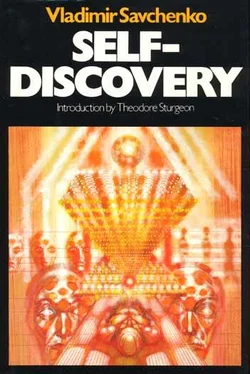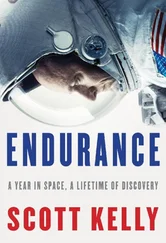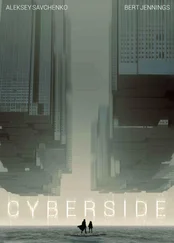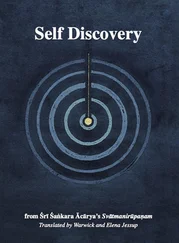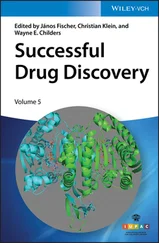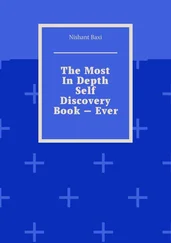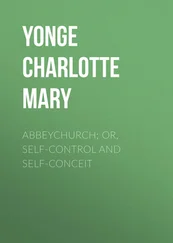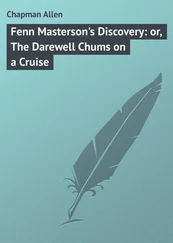Vladimir Savchenko - Self-discovery
Здесь есть возможность читать онлайн «Vladimir Savchenko - Self-discovery» весь текст электронной книги совершенно бесплатно (целиком полную версию без сокращений). В некоторых случаях можно слушать аудио, скачать через торрент в формате fb2 и присутствует краткое содержание. Город: NEW YORK — LONDON, Год выпуска: 1979, Издательство: MACMILLAN PUBLISHING CO., INC; COLLIER MACMILLAN PUBLISHERS, Жанр: Фантастика и фэнтези, на английском языке. Описание произведения, (предисловие) а так же отзывы посетителей доступны на портале библиотеки ЛибКат.
- Название:Self-discovery
- Автор:
- Издательство:MACMILLAN PUBLISHING CO., INC; COLLIER MACMILLAN PUBLISHERS
- Жанр:
- Год:1979
- Город:NEW YORK — LONDON
- ISBN:нет данных
- Рейтинг книги:3 / 5. Голосов: 1
-
Избранное:Добавить в избранное
- Отзывы:
-
Ваша оценка:
- 60
- 1
- 2
- 3
- 4
- 5
Self-discovery: краткое содержание, описание и аннотация
Предлагаем к чтению аннотацию, описание, краткое содержание или предисловие (зависит от того, что написал сам автор книги «Self-discovery»). Если вы не нашли необходимую информацию о книге — напишите в комментариях, мы постараемся отыскать её.
Self-discovery — читать онлайн бесплатно полную книгу (весь текст) целиком
Ниже представлен текст книги, разбитый по страницам. Система сохранения места последней прочитанной страницы, позволяет с удобством читать онлайн бесплатно книгу «Self-discovery», без необходимости каждый раз заново искать на чём Вы остановились. Поставьте закладку, и сможете в любой момент перейти на страницу, на которой закончили чтение.
Интервал:
Закладка:
The man left the phone booth with a sense of relief: he had suddenly realized that he was not prepared to see him. “Well, I’m here. I might as well try. Maybe he’s at home?”
He got on a bus. He was not interested in the city streets swathed in blue twilight: he had left in summer and he came back in summer. Everything was green, and it seemed that nothing had changed.
“Now, really, how can we use art information in our work? And can it be used? The whole problem is that this information doesn’t become part of a man’s life experience, or his exact knowledge, and it is on experience and knowledge that people base their actions. It really should go something like this: a man reads a book, begins to understand himself and his friends; a louse sees a play, becomes horrified and turns into a decent man; a coward goes down to the movies and comes out a hero. And it should last a lifetime, not just five minutes. That’s probably what writers and painters hope for when they create. Why doesn’t it happen? Let’s think. Art information is constructed along the lines of everyday information. It is concrete, contains subtle and flexible generalizations, but it is not real. It’s only realistic, probable. That must be its weakness. It cannot be applied like scientific information: a man cannot plan out his life based on it. It is not universal and objective enough for that. And you can’t use it for a guideline the way daily information can be used because its concreteness never coincides with the concrete life of the given reader. “And even if it did coincide, who wants to lead a copycat life? You can copy a hairdo, that’s all right, but to copy a life recommended by a large printing. Apparently, the idea of ‘rearing along literary examples’ springs from the idea that man comes from the apes and that imitation comes naturally to him. But man has been man for a long time, millions of years. Now he is characterized by self — determination and original behavior which he knows to be the better course.” “Academic Town!” the driver announced.
The man got off the trolley and saw immediately that his trip had been in vain. Two rows of standardized five — story houses, joining at the horizon, gazed upon one another with lighted windows. But there were no lights in the corner apartment on the fifth floor of house No. 33.
A feeling of relief that the unpleasant meeting with Krivoshein was put off, once again mingled with regret: he had no place to sleep. He took a trolley back downtown and started checking out the hotels. Naturally, they were all full.
And he started thinking again, his thoughts coloring his glum attempts to find a place for the night.
“The longer we live, the more we see that there are many life situations in which the decisions described in books or shown in movies are inapplicable. And we begin to see the information from art as a quasi — life, in which things are not really like that. It’s a good place to live through a dangerous adventure (even with a fatal ending) or to test one’s principles without jeopardizing one’s job — in a word, to feel, if only for a brief moment, that you are someone else: smarter, handsomer, braver than you really are. It’s no secret that people who live humdrum lives adore adventure and mystery novels….” He was on Marx Prospect, with its neon signs and bright lights. “And we use this marvelous information for trifles, for amusement to pass some time. Or to charm a girl with the right poem. That information does not belong to us. We didn’t reach the conclusions and truths about ourselves. We can just sit back, watch or read, as an invented life goes beyond a glass screen — we are merely ‘information receptors! Of course, there have been instances when the ‘receptors’ couldn’t stand it and tried to influence it: Dad used to tell about the Red Army soldier in Samara who once shot at an actor who played Admiral Kolchak in a play for the troops, and earlier in Nizhny Novgorod, the audience beat up the actor who was portraying lago — for his good acting. The idea of breaking down the glass barrier and acting on art is a good one. There’s something to it….”
A thought, still unverbalized, unclear, more a hunch, ripened in his mind. But someone tapped him on the shoulder just then. He looked around: there were three men in civilian clothes. One of them casually waved a red book under his nose.
“Show your documents, citizen.”
The man shrugged, put down his backpack, and took his passport from his pocket. The operative read the first page, looked at the photograph and his face and the photograph again, and returned the passport.
“Everything is in order. Excuse us, please.”
“Ooofff!” The man picked up his pack, and trying not to walk any faster, moved on toward the Theater Hotel. His mood was worse. “I don’t think I should have come.”
The three men walked over to a tobacco kiosk. Officer Gayevoy, also dressed as a plainclothesman, was waiting for them.
“I told you,” he said triumphantly.
“Not the one….” sighed the operative. “Some guy called Valentin Vasilyevich Krivoshein. But if you go by the photo and the description, he’s definitely Kravets.”
“Description, description… what’s a description?” Gayevoy was angry. “I saw him, you know: he had no gray hair, was about ten years younger, and a lot thinner.”
“Let’s go over to the railroad station, fellows,” the second operative suggested. “After all, he’s no fool. He’s not going to stroll down the avenue!”
Victor Kravets was at that moment making his way down a dark, deserted side street.
After he jumped out of the moving police car, he went through the park to the banks of the Dnieper and lay in the bushes, waiting for dark. He wanted to smoke and to eat. The low sun gilded the sand of Beach Island, dotted with bright mushrooms; there were still bathers there. A small tug, spreading watery whiskers from shore to shore, was hurrying upriver to the freight yards to get a new barge. Cars and buses moved noisily below the cliff.
“We finally got there. We thought everything through: the method of the experiments, the variants in using the method, even its influence on the world situation. This was the only variant we didn’t foresee. What a fall from great heights face down into the mud! From researcher to criminal. My God, what kind of work is this — one failed experiment and everything flies out the window. I’m not prepared for this game with investigators and medical experts, so unprepared that I might as well go down to the library and start reading up on the criminal code and the — what else is there? — the judicial code. I don’t know the rules of the game, and I might lose. I guess, I already have lost. The library… how could I have time for the library now?”
The cooling towers of the electrostation on the other side of the Dnieper exhaled fat columns of steam as though they were trying to make clouds. The low edge of the sun touched them.
“What should I do now? Go back to the police, tell them everything, make a clean breast of it’ and give away (despicably) the secret we tried to keep from evil eyes? And give it away not to save the project, but to save myself? This won’t save the work: in two or three days everything will start rotting in the laboratory, and I won’t be able to prove a thing, and no one will believe me, and no one will know what happened there. I won’t save myself that way either: Krivoshein died. The weight of his death is on me, as they say. Should I go to Azarov and explain things to him? There’s no way I could explain anything to him now. I’m less than a student on probation to him — I’m a shady character with forged papers. If he’s been informed of my escape, then as a loyal administrator, he must cooperate with the police. There it is, man’s problem, in full view. The source of all our troubles. We simply can’t solve it through the laboratory method. We! That’s a laugh. We who have achieved such greatness. We in whose hands lie the unheard — of possibilities of synthesizing information. What the hell. We can’t handle this problem; time to fess up. And what sense is there in the rest without it?”
Читать дальшеИнтервал:
Закладка:
Похожие книги на «Self-discovery»
Представляем Вашему вниманию похожие книги на «Self-discovery» списком для выбора. Мы отобрали схожую по названию и смыслу литературу в надежде предоставить читателям больше вариантов отыскать новые, интересные, ещё непрочитанные произведения.
Обсуждение, отзывы о книге «Self-discovery» и просто собственные мнения читателей. Оставьте ваши комментарии, напишите, что Вы думаете о произведении, его смысле или главных героях. Укажите что конкретно понравилось, а что нет, и почему Вы так считаете.
